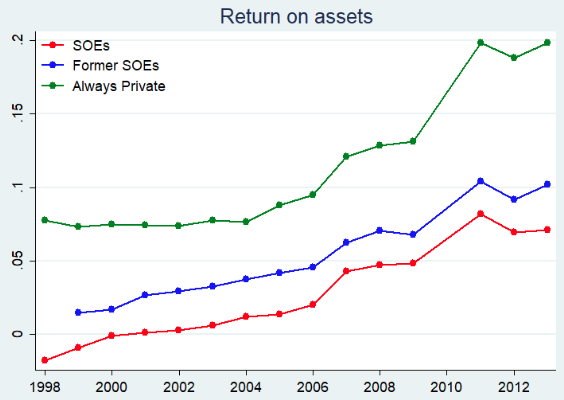The primary difference between the two plans is the number of users offered. Office 365 Business can be used and shared with up to 300 users, whereas Office 365 Enterprise can be shared with an unlimited number of users. A state owned enterprise is set up by the government whereas the private owned enterprise is set up by private people. State owned enterprises are set up through an act of parliament, but private enterprises are set up through the registrar of companies.
In this short article we are going to take a look at the main differences between a state owned enterprise and a private enterprise. In doing this, we will simply take a look at the characteristics of each.

A state owned enterprise, as the name suggests is one that is owned and managed by the state whereas a private enterprise is one that owned and managed by private individuals.

Differences between state owned enterprises and private enterprises
- A state owned enterprise is set up by the government whereas the private owned enterprise is set up by private people.
- State owned enterprises are set up through an act of parliament, but private enterprises are set up through the registrar of companies.
- State owned companies are owned and controlled solely by the state, but private companies are owned and controlled by private individuals.
- The aim of the state owned companies is to provide essential services to the people. It is not set up solely to make profit. However, the private enterprises are set up with the sole aim of making profit for their owners. Profit making is the sole aim of private enterprises.
- When state enterprises incur losses, these losses are borne by the state, but the losses incurred by private enterprises are borne by the private individuals.
- When state enterprises make profit, the profit is paid into consolidated fund; on the other hand when private enterprises make profit, the profit is shared by the owners of the company.
The topic of social enterprise comes up often in discussions and meetings that I have with nonprofits, businesspeople interested in nonprofits, and foundations. I keep tripping over the lexicon, though, because I don’t think that the commonly used terms are certain, universal, or completely clear. It seems that the “field” encompasses a number of different types of organizations with different definitions and identifiers. Because I dance around these phrases so often, I looked around the other day to compile definitions for these terms in regular use.
Rental Car Companies Enterprise
Social enterprise is defined by Social Enterprise Alliance as “an organization or venture (within an organization) that advances a social mission through entrepreneurial, earned income strategies.” This often reflects a market-based effort to receive earned income in direct exchange for a product or service. Examples of social enterprise from SEA include:

- A substance abuse treatment facility operating a moving company
- An organization promoting college enrollment that provides workshops to educators
- A youth services organization opening a pretzel shop or ice cream shop franchise
- Goodwill thrift stores
Social entrepreneurs are defined by Ashoka as those who “act as the change agents for society, seizing opportunities others miss and improving systems, inventing new approaches, and creating solutions to change society for the better. While a business entrepreneur might create entirely new industries, a social entrepreneur comes up with new solutions to social problems and then implements them on a large scale.” Examples include:
- Jim McCorkell, founder of College Possible (an Ashoka Fellow)
- Muhammad Yunus, founder of Grameen Bank

Using Enterprises In A Business Name
A socially responsible business is defined as a venture (generally for-profit) that seeks to “leverage business for a more just and sustainable world” (Social Venture Network) or “help create a better world by building healthy communities, promoting economic equity, and fostering a clean environment” (Social Investment Forum). In addition to generating a profit for shareholders, these businesses have goals in the areas of economic development, employment, environmental practices, or ethical business practices.
For me, the key distinctions between these terms are the following:
Difference Between Enterprise And Enterprise N
- Social enterprises are defined by revenue source
- Social entrepreneurs are defined by innovative vision and strategy
- Socially responsible businesses are defined by the intention and goals of a for-profit business
The Difference Between Private Enterprise And Public Enterprises
It may seem to some people that the definitions are just semantics, but I think they’re important if we want to create resources, find capital, and develop a knowledge base. The needs and demands are probably different if your focus is on revenue sources rather than a game changing strategy.What do you think – do these definitions matter? Are the three listed here on the right track, or would you offer some others?
